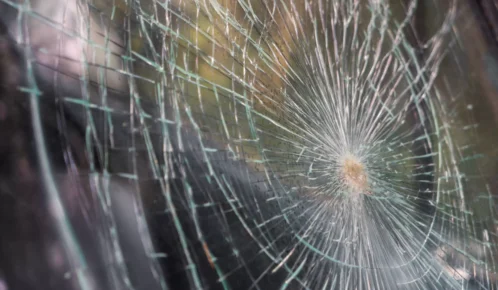Following any instance of medical malpractice, it’s important for victims to seek medical treatment from other professionals to begin the recovery process and obtain medical records proving the nature of their injuries. Getting medical treatment after medical malpractice can provide a patient with crucial evidence for his or her case.
Table of Contents

Understanding Medical Malpractice in Illinois
There are aspects of medical malpractice cases that a victim of medical malpractice should know about. These include the following key items:
Requirements for Medical Malpractice Cases
If you or a loved one suffers injuries because of a medical malpractice incident, there are a few main items you must prove to seek compensation. The grounds for a medical malpractice lawsuit include:
- That a patient-doctor relationship existed and that the medical care provider owed a duty of care
- That the medical professional or another liable party breached that duty of care
- That the breach of duty of care led to injuries that the patient sustained
- That these injuries contributed to quantifiable damages, including medical bills and other expenses
Common Types of Medical Malpractice
Multiple types of medical malpractice cases can take place, but there are several common signs of medical malpractice to look for in these cases.
Some common forms of medical malpractice involve misdiagnosis, which result when a doctor makes the wrong diagnosis and winds up prescribing the wrong treatment. Other cases can involve a failure to diagnose, in which case the patient may not receive any treatment as his or her condition worsens. Meanwhile, other cases can involve surgical errors, medication errors, and other types of malpractice that can lead to serious complications and injuries that put patients at risk.
If you believe that any form of malpractice has occurred, you must take the necessary steps to prove your case and begin receiving treatment to initiate the recovery process.
Finding the Right Medical Treatment After an Injury Caused by Malpractice
If your doctor or another healthcare professional causes an injury to you or a loved one, it’s critical to seek treatment from other medical professionals. However, it can be challenging to find the ideal healthcare provider, especially if you’re wary of professionals following any instance of malpractice. Thankfully, there are plenty of resources available to help you find the right professionals to provide care for your injuries.
Ways to Research Healthcare Professionals
You can find the right medical treatment after medical malpractice by taking some of the following steps:
- Find a care provider in your network through your insurance
- Read reviews of the medical professional to gauge the quality of care
- Get referrals from people close to you, such as family or friends
- Look for a doctor that specializes in the specific field you need
- Look online for doctors within your geographic area, which will make it easier to get to them or for them to get to you
Sites like WebMD have directories of doctors and reviews that can help you locate the ideal medical professional when getting medical treatment after medical malpractice. You may also be able to find a trustworthy doctor by connecting with a medical malpractice lawyer who has connections to reliable experts.
Steps to Take When Seeking Medical Treatment After Medical Malpractice
If you need medical treatment after malpractice, there are some key steps to take that will help you get the specific treatment you need as soon as you need it, whether for treating the physical or psychological effects of medical malpractice. These steps will also make it possible to build a medical malpractice claim or lawsuit against liable parties, including individual medical professionals and care facilities.
Maintain All Medical Records
When getting medical treatment after medical malpractice, hold on to all medical records that your doctor provides. These records can prove the extent of your injuries and that medical malpractice caused them, which could make them critical pieces of evidence in a malpractice case.
Getting a Second Opinion
After seeing a doctor for treatment following medical malpractice, you may also want to get a second opinion from another medical professional, which can help further confirm that malpractice contributed to your injuries and help you get on the path to a full recovery. You might be able to find another professional on your own, or you can consult an attorney or another expert to refer you to another expert for a second opinion. Again, you should keep copies of all medical records you recover when seeking a second opinion, which could help prove medical negligence.
Communicate Possible Concerns and Expectations With Your New Healthcare Provider
When seeing a new doctor, be open and honest when discussing treatment. If you have any concerns or aren’t sure what to expect, bring them up before or during treatment. A good healthcare provider will provide you with all the information you need to make an informed decision regarding your care and help you better understand the nature of your condition.
Knowing How to Proceed With a Case After Treatment
After you’ve sought treatment for injuries after a medical malpractice incident, you may need to proceed with a malpractice case against the responsible parties. In the process, you might have many questions like, “Can you sue a nurse for medical malpractice?” “How long do medical malpractice lawsuits usually take?” and “What kind of compensation can I recover?” For the information you need, it’s often best to speak with a qualified medical malpractice attorney.
An attorney can discuss a potential claim or lawsuit and may even point you in the direction of a doctor for treatment or a second opinion. You can also receive guidance on how to file a claim or suit on time before the statute of limitations for your case runs out.
Getting medical treatment after medical malpractice is a crucial step to take, as it can provide you with the care you need while helping you prepare a case with the assistance of an attorney. You may then be able to collect all evidence to prove negligence and begin seeking total compensation for the injuries you sustained.



